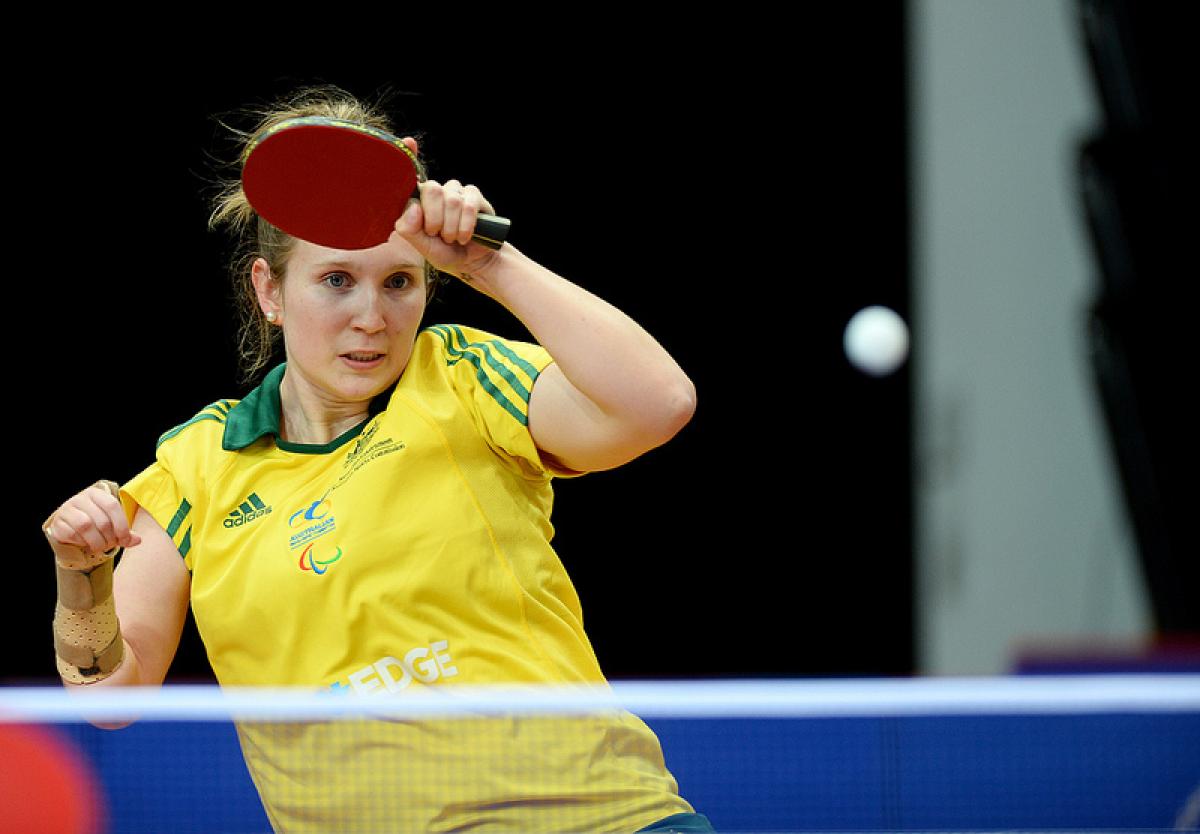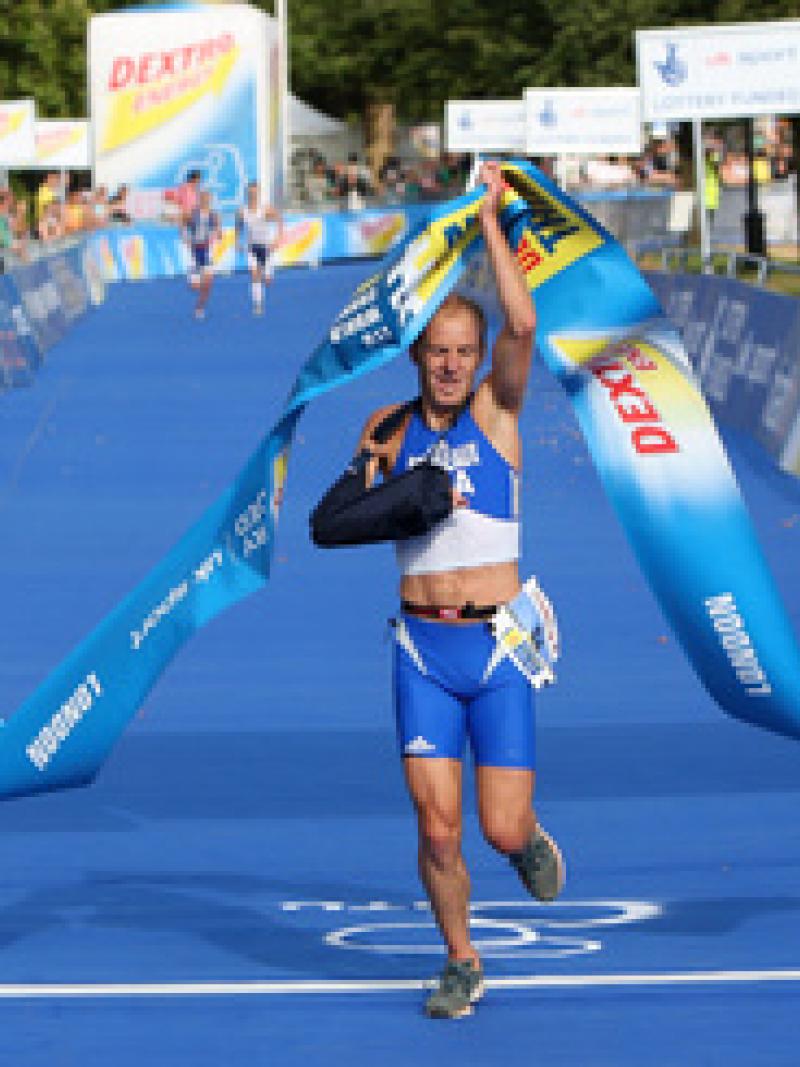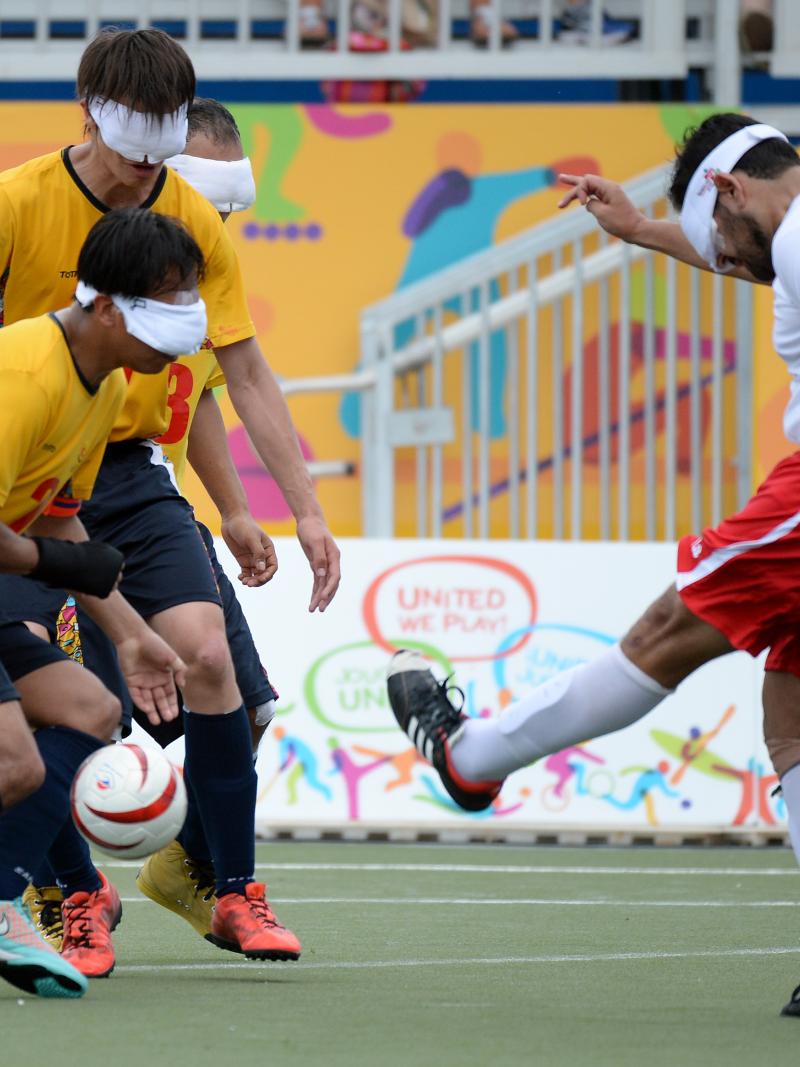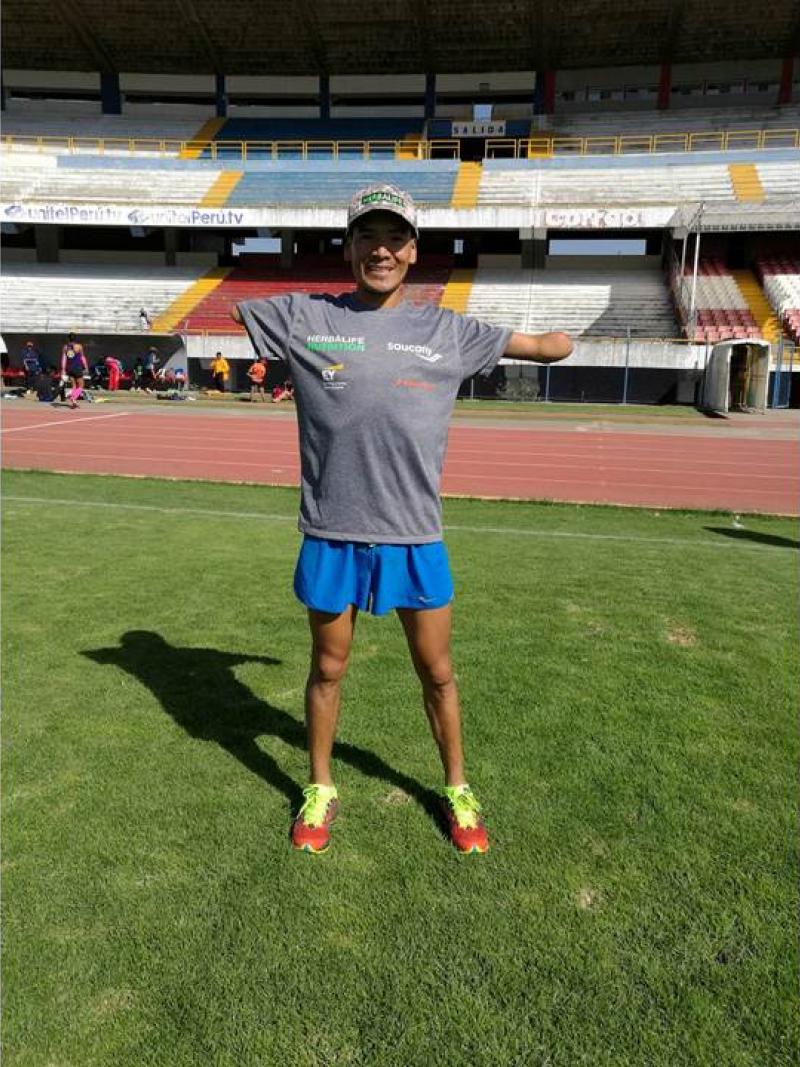‘Table Tennis for NepALL’ project launched
The ITTF released a YouTube video documenting the project’s launch, as it aims to support children with impairments in Nepal. 13 Jul 2016
Australia's Melissa Tapper is ranked No. 4 in the world in the women's table tennis singles Class 10.
A three-year Para table tennis project has been launched in Nepal by the International Table Tennis Federation (ITTF) and United Nations Office on Sport for Development and Peace (UNOSDP). Called “Table Tennis for NepALL,” the aim is to support children with impairments in the country.
The ITTF released a short video on YouTube in late June to introduce the project and catch up on its progress. It follows Australian Para table tennis player Melissa Tapper’s experience visiting the country and playing table tennis with children.
The video can be watched here.
“Nepal has been an amazing experience for me, coming to this country for the first time and experiencing their culture and how amazing the people are who live here,” Tapper said in the video. “To play on a table outside with Nepal Para table tennis players and the national team and able-bodied players was amazing.”
The project was officially launched on 6 April, along with World Table Tennis Day.
Wilfried Lemke, the Special Adviser to the United Nations Secretary-General on Sport for Development and Peace, attended the inauguration ceremony and also gave Para table tennis a try. Lemke commemorated the International Day of Sport for Development and Peace (IDSDP) by promoting the power of sport, such as table tennis among people with a disability in Nepal; he was joined by ITTF President Thomas Weikert, and Working Group on Sport and Persons with Disabilities Chair Ambassador Young Sam Ma.
The same ceremony inaugurated the newly renovated Para Table Tennis Training Centre in Kathmandu, damaged by last year’s earthquake.
“With the Table Tennis for NepALL project, the ITTF is providing a great example of how sport, in this case table tennis, can be used to facilitate the inclusion of persons with disabilities in society,” said Lemke in the press conference.
Table Tennis for NepALL will run for three years and is organised by the All Nepal Table Tennis Association (ANTTA), the Nepalese Disabled Table Tennis Association (NDTTA) together with the ITTF and the support of the United Nations Office on Sport for Development and Peace.
Ambassador Ma expressed his support: “For sure Table Tennis for NepALL provides hope and encouragement to them our Working Group, and the Republic of Korea government will continue supporting such causes with projects on the field.”
Added Weikert: “Table tennis is not only a question of competition, we have seen today that we can make a big difference in people’s lives using our sport for development and peace, in this case improving the conditions of children with a disability.”
After witnessing the projects turn out in Nepal, Lemke encouraged Sport and Development players to continue promoting such initiatives.
“Following this fantastic example, more partnerships and initiatives need to be implemented in all sectors and at all levels, especially between governments, civil society and sports organisations.”

 Facebook
Facebook
 Instagram
Instagram
 Twitter
Twitter
 Youtube
Youtube
 TikTok
TikTok
 Newsletter Subscribe
Newsletter Subscribe



